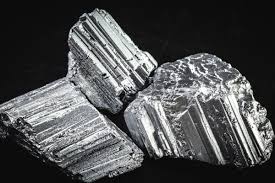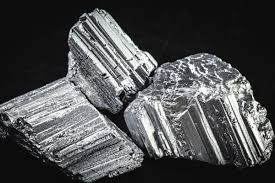
The quest by the auto industry to produce electric car motors with minimal or no rare earth content has reached a fever pitch, with suppliers and automakers from the US, Europe, and Japan vying for market share against China.
Since these motors are the best at producing the torque needed to power EVs, automakers have primarily depended on them. These motors contain permanent magnets based on rare earth elements.
However, a variety of permanent magnet-free motor types that were previously too large and inefficient, or those with far lower rare earth concentration, have become economically viable, which has sparked a search for substitutes.
The industry leader Tesla made news earlier this year when it announced that it would stop using rare earth elements in its next EVs.
However, key suppliers like BorgWarner and automakers ranging from General Motors to Jaguar Land Rover (JLR) are investigating or have already created motors with little to zero rare earth material, notably magnet-free externally excited synchronous machines, which use electric current to create a magnetic field.
Some, like Nissan, are going further than previously stated. They are developing permanent magnet motors, in which the rare earth material will be gradually reduced, in addition to the newer EESM motors.
Although businesses abroad are attempting to weaken China's hold, China still controls the majority of the mining and processing of rare earths, a group of 17 metals.
The problem of over-relying on China was brought to light by recent Chinese limitations on exports of gallium and graphite, which are essential for the development of electric vehicles.
According to Chief Technology Officer Otmar Scharrer, a German supplier, ZF has created an EESM motor that is comparable in size and performance to permanent magnet motors.
"This is an important contribution to making us a little more independent of China," he said.
According to Scharrer, ZF is in negotiations with Chinese, European, and American manufacturers to supply the motor and may start producing model EVs in two years.
Refining rare earths, such neodymium and dysprosium, requires solvents and toxic waste, which goes against sustainability aims. This is not to mention the over-reliance on China.
"If you get it right, you've got a much more sustainable product," Ben Chiswick, director of engineering business development at Detroit-based Drive System Design, which is developing rare earth-free motors with three automakers.
After years of research, several automakers claim to already be there, such as BMW.
"It was not a home run... but it works very well without rare earths" said Uwe Deuke, the engineer in charge of developing BMW's EESM motor for its next-generation EVs.
Hard rare earth neodymium weighing around 600 grammes (1.32 lb) is needed for an average EV permanent magnet motor. Neodymium prices have been very volatile; they are currently at about $125/kg, down from a peak of about $223 last year, but still significantly higher than $65 in 2020.
A new Vitesco EESM motor is scheduled for release in 2026. It was created for Renault. Rare earth-free solutions, according to Gerd Roesel, head of innovation at the German supplier's electrification section, avoid those extreme price fluctuations.
Others, such as the American firm Niron Magnetics, are creating permanent magnets devoid of rare earth elements.
According to Niron CEO Jonathan Rowntree, Tesla's declaration that it will no longer be using rare earths "opened up buyers' eyes to the fact that you don't really need rare earths to make EV magnets."
GM and Stellantis contributed to Niron's most recent funding round.
Nissan's Ariya crossover is powered by an EESM motor. Nissan is creating improved EESM motors as well as permanent magnets in places where rare earths may eventually be phased out, according to Shunji Oki, expert leader at the automaker's powertrain and EV engineering division.
As rare earth prices rose, automakers rushed to find alternatives, according to James Edmondson, an analyst at the consultancy IDTechEx. However, now that prices have dropped, automakers are keeping a close eye on China and waiting to see if governments take any action to limit the use of Chinese rare earths, similar to what the U.S. Inflation Reduction Act did.
"This is why they (automakers) have other technologies waiting in the wings," he said.
Since Chinese EV manufacturers are under no pressure to reduce their use, IDTechEx predicts that rare-earth permanent magnet motors will still account for over 70% of the global market over the next ten years, while their proportion will be much closer to 50% in Europe, according to Edmondson.
Additionally, he said that while western automakers continue to use rare-earth permanent magnets, they are trying to drastically cut their composition.
For example, the next-generation EV platform from Mercedes-Benz has nearly no heavy rare earth material.
The problem extends beyond motors as well.
About one-third of the rare earths used in some EVs are found in the speakers of the audio system. UK firm Warwick Acoustics has developed rare earth-free speakers that are 90% lighter and more energy efficient than conventional ones. CEO Mike Grant announced that the company has signed up its first luxury automobile customer and is in talks with others.
"We're fighting off people right now," he said.
(Source:www.saltwire.com)
Since these motors are the best at producing the torque needed to power EVs, automakers have primarily depended on them. These motors contain permanent magnets based on rare earth elements.
However, a variety of permanent magnet-free motor types that were previously too large and inefficient, or those with far lower rare earth concentration, have become economically viable, which has sparked a search for substitutes.
The industry leader Tesla made news earlier this year when it announced that it would stop using rare earth elements in its next EVs.
However, key suppliers like BorgWarner and automakers ranging from General Motors to Jaguar Land Rover (JLR) are investigating or have already created motors with little to zero rare earth material, notably magnet-free externally excited synchronous machines, which use electric current to create a magnetic field.
Some, like Nissan, are going further than previously stated. They are developing permanent magnet motors, in which the rare earth material will be gradually reduced, in addition to the newer EESM motors.
Although businesses abroad are attempting to weaken China's hold, China still controls the majority of the mining and processing of rare earths, a group of 17 metals.
The problem of over-relying on China was brought to light by recent Chinese limitations on exports of gallium and graphite, which are essential for the development of electric vehicles.
According to Chief Technology Officer Otmar Scharrer, a German supplier, ZF has created an EESM motor that is comparable in size and performance to permanent magnet motors.
"This is an important contribution to making us a little more independent of China," he said.
According to Scharrer, ZF is in negotiations with Chinese, European, and American manufacturers to supply the motor and may start producing model EVs in two years.
Refining rare earths, such neodymium and dysprosium, requires solvents and toxic waste, which goes against sustainability aims. This is not to mention the over-reliance on China.
"If you get it right, you've got a much more sustainable product," Ben Chiswick, director of engineering business development at Detroit-based Drive System Design, which is developing rare earth-free motors with three automakers.
After years of research, several automakers claim to already be there, such as BMW.
"It was not a home run... but it works very well without rare earths" said Uwe Deuke, the engineer in charge of developing BMW's EESM motor for its next-generation EVs.
Hard rare earth neodymium weighing around 600 grammes (1.32 lb) is needed for an average EV permanent magnet motor. Neodymium prices have been very volatile; they are currently at about $125/kg, down from a peak of about $223 last year, but still significantly higher than $65 in 2020.
A new Vitesco EESM motor is scheduled for release in 2026. It was created for Renault. Rare earth-free solutions, according to Gerd Roesel, head of innovation at the German supplier's electrification section, avoid those extreme price fluctuations.
Others, such as the American firm Niron Magnetics, are creating permanent magnets devoid of rare earth elements.
According to Niron CEO Jonathan Rowntree, Tesla's declaration that it will no longer be using rare earths "opened up buyers' eyes to the fact that you don't really need rare earths to make EV magnets."
GM and Stellantis contributed to Niron's most recent funding round.
Nissan's Ariya crossover is powered by an EESM motor. Nissan is creating improved EESM motors as well as permanent magnets in places where rare earths may eventually be phased out, according to Shunji Oki, expert leader at the automaker's powertrain and EV engineering division.
As rare earth prices rose, automakers rushed to find alternatives, according to James Edmondson, an analyst at the consultancy IDTechEx. However, now that prices have dropped, automakers are keeping a close eye on China and waiting to see if governments take any action to limit the use of Chinese rare earths, similar to what the U.S. Inflation Reduction Act did.
"This is why they (automakers) have other technologies waiting in the wings," he said.
Since Chinese EV manufacturers are under no pressure to reduce their use, IDTechEx predicts that rare-earth permanent magnet motors will still account for over 70% of the global market over the next ten years, while their proportion will be much closer to 50% in Europe, according to Edmondson.
Additionally, he said that while western automakers continue to use rare-earth permanent magnets, they are trying to drastically cut their composition.
For example, the next-generation EV platform from Mercedes-Benz has nearly no heavy rare earth material.
The problem extends beyond motors as well.
About one-third of the rare earths used in some EVs are found in the speakers of the audio system. UK firm Warwick Acoustics has developed rare earth-free speakers that are 90% lighter and more energy efficient than conventional ones. CEO Mike Grant announced that the company has signed up its first luxury automobile customer and is in talks with others.
"We're fighting off people right now," he said.
(Source:www.saltwire.com)





